
Unsere Mitglieder
QUTAC bringt 14 der führenden deutschen Konzerne und Branchenführer zusammen. Gemeinsam wollen wir Quantencomputing industriell nutzbar und wirtschaftlich erfolgreich machen und damit einen Beitrag zur digitalen Souveränität Deutschlands und Europas leisten.
-
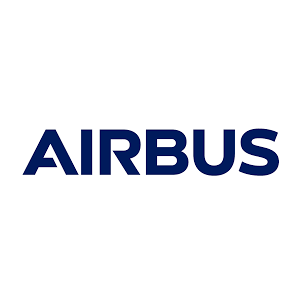 Airbus
Airbus
Als eines der führenden Unternehmen seiner Branche engagiert sich Airbus für eine nachhaltige Luft- und Raumfahrt im Dienste einer sicheren und geeinten Welt.
In QUTAC wird sich das Unternehmen gemeinsam mit den anderen Mitgliedern des Konsortiums für die Schaffung eines souveränen deutschen und europäischen Quantencomputing-Ökosystems engagieren. Hierzu wird Airbus die industrielle Nutzbarmachung der Technologie im Bereich der Luft- und Raumfahrt vorantreiben, aktuelle Entwicklungen der Quantencomputing-Hardware beobachten, sowie seines Forschungs- und Entwicklungsfortschritte in Konferenzen und Förderprojekte einbringen.
-
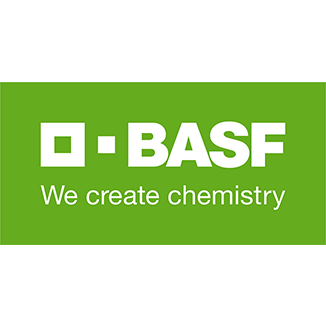 BASF
BASF
BASF steht für Chemie für eine nachhaltige Zukunft. Unser Anspruch: Wir wollen das bevorzugte Chemieunternehmen sein, um die grüne Transformation unserer Kunden zu ermöglichen. Wir verbinden wirtschaftlichen Erfolg mit dem Schutz der Umwelt und gesellschaftlicher Verantwortung. Weitere Informationen unter www.basf.com.
In QUTAC setzt die BASF sich gemeinsam mit den Industriepartnern für die nahtlose Übertragung von Forschungsergebnissen in die industrielle Praxis ein. Wir tauschen Anwendungsfälle aus und bringen diese gemeinsam mit Forschungsinstitutionen auf den Weg. Besonderes Gewicht legen wir auf Anwendungskompetenz und einen möglichst barrierefreien Zugang zu Quantencomputern, Wissensübertragung und Ausbildung. Das spezifische Interesse der BASF gilt natürlich Anwendungen in und für die Chemie, z. B. Materialwissenschaft, aber auch Scheduling-Probleme.
-
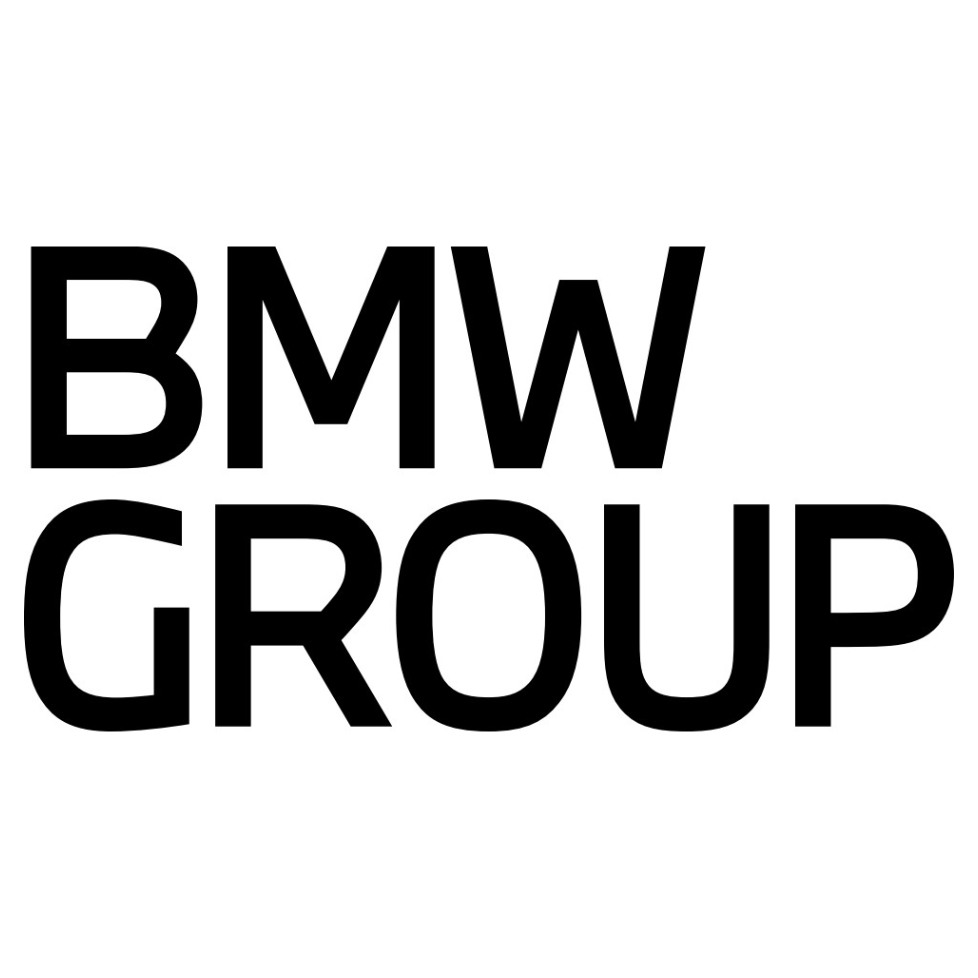 BMW Group
BMW Group
Die BMW Group ist mit ihren Marken BMW, MINI, Rolls-Royce und BMW Motorrad der weltweit führende Premium-Hersteller von Automobilen und Motorrädern und Anbieter von Premium-Finanz- und Mobilitätsdienstleistungen. Das BMW Group Produktionsnetzwerk umfasst über 30 Produktionsstandorte weltweit; das Unternehmen verfügt über ein globales Vertriebsnetzwerk mit Vertretungen in über 140 Ländern.
Die BMW Group treibt innerhalb von QUTAC den Einsatz von Quantencomputing für industrielle Fragestellungen in der Automobilindustrie voran. Das Automobil ist eines der komplexesten Konsumgüter. Optimierungsprobleme in der Lieferkette, Logistik, Entwicklung und Produktion wie zum Beispiel Roboterpfadplanung oder Pufferoptimierung, Materialsimulation für Batterieentwicklung oder Machine Learning Anwendungen im Bereich Textverarbeitung oder Computer Vision bieten vielversprechende Potenziale für die Verprobung von Quantenalgorithmen.
-
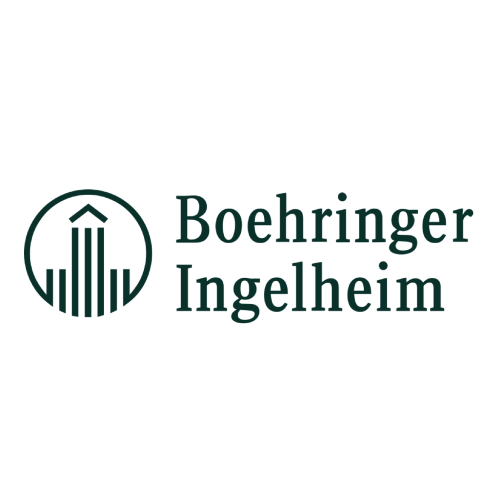 Boehringer Ingelheim
Boehringer Ingelheim
Boehringer Ingelheim ist ein biopharmazeutisches Unternehmen, das in den Bereichen Humanmedizin und Tiergesundheit tätig ist. Als einer der größten Investoren in Forschung und Entwicklung konzentriert sich das Unternehmen auf die Entwicklung innovativer Therapien in Bereichen mit hohem ungedecktem medizinischem Bedarf. Durch die Unabhängigkeit seit seiner Gründung im Jahr 1885 nimmt Boehringer eine langfristige Perspektive ein und verankert Nachhaltigkeit entlang der gesamten Wertschöpfungskette. Mehr als 53.500 Mitarbeitende bedienen über 130 Märkte für eine gesündere, nachhaltigere und gleichberechtigtere Zukunft.
Innerhalb von QUTAC befasst sich das Pharmaunternehmen mit Quantencomputing als Chance, die Erforschung neuer Medikamente voranzutreiben, indem Laborforschung durch Computersimulationen ergänzt und so beschleunigt wird.
-
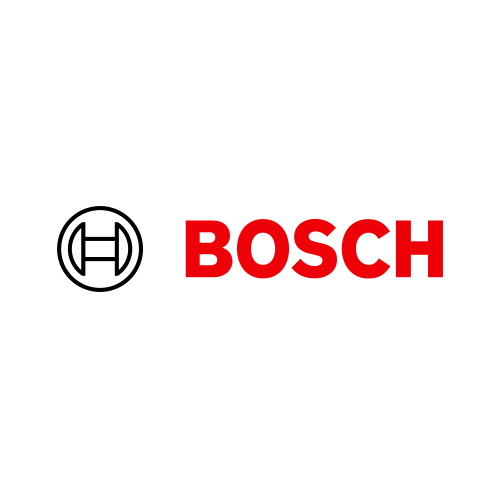 Bosch
Bosch
Die Bosch-Gruppe ist ein international führendes Technologie- und Dienstleistungsunternehmen mit weltweit rund 428 000 Mitarbeitenden. Die Bosch-Gruppe umfasst die Robert Bosch GmbH sowie ihre rund 470 Tochter- und Regionalgesellschaften in mehr als 60 Ländern.
Im Rahmen von QUTAC trägt Bosch dazu bei, unterschiedliche Methoden zur Materialsimulation, der Beurteilung von Quantencomputer-Hardware und der politischen Kommunikation zu erarbeiten.
-
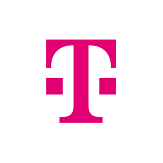 Deutsche Telekom
Deutsche Telekom
Die Deutsche Telekom gehört mit rund 252 Millionen Mobilfunk-Kunden, 25 Millionen Festnetz- und 22 Millionen Breitband-Anschlüssen zu den führenden integrierten Telekommunikations-Unternehmen weltweit.
Innerhalb des Quantum Technology & Application Consortium widmet sich das Unternehmen vor allem Quantencomputing-Anwendungen in der Telekommunikation und entwickelt diese auf Basis seiner Erfahrungen weiter. Hierzu gehören Themen wie die Implementierung von Quantenalgorithmen im Bereich der Netzwerkoptimierung und -planung, der Aufbau quantenkryptografischer Plattformen sowie die Nutzbarmachung quantenmechanischer Eigenschaften für neuartige Kommunikations- und Koordinationsmöglichkeiten.
-
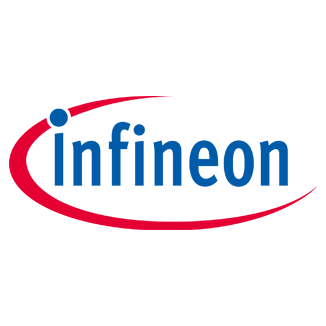 Infineon
Infineon
Die Infineon Technologies AG ist ein führender Anbieter von Halbleiterlösungen und gehört mit seinen im Geschäftsjahr 2023 rund 58.600 Beschäftigten und einem Umsatz von mehr als 16,3 Milliarden Euro zu den zehn größten Halbleiterherstellern der Welt.
Infineon arbeitet mit führenden Unternehmen in Deutschland und Europa im Quantum Technology & Application Consortium (QUTAC) zusammen, um die Industrialisierung des Quantencomputing voranzutreiben. Hierbei fokussiert sich das Unternehmen primär auf die Umsetzung neuer Lösungsansätze für einen verbesserten Nachfrage-Kapazitäts-Abgleich sowie die sensorgestützte Optimierung der Lieferketten. Darüber hinaus erforscht und entwickelt Infineon Komponenten für drei der vielversprechendsten Quantencomputer-Technologien: Supraleiter, Halbleiter und Ionenfallen. Mit diesem Ansatz gehört Infineon zu den industriellen Pionieren und verfügt über das umfangreichste Technologieportfolio der Branche.
-
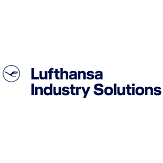 Lufthansa Industry Solutions
Lufthansa Industry Solutions
Die Lufthansa Industry Solutions gehört mit ihren über 2.500 Mitarbeitenden an 14 Standorten und über 300 Kund*innen zu den 25 größten IT-Beratungsunternehmen Deutschlands. Als kompetenter Partner unterstützt die Lufthansa-Tochter Unternehmen unterschiedlicher Branchen mit innovativen Lösungen und Services in Bereichen wie Künstliche Intelligenz, Data Analytics, Cloud oder IoT und SAP. Das Leistungsspektrum umfasst sämtliche IT-Dienstleistungen, beginnend von der Beratung über die Entwicklung maßgeschneiderter Anwendungen bis hin zu As-a-Service-Angeboten sowie dem Applikationsmanagement und IT-Betrieb.
Die Lufthansa Industry Solutions vertritt im Quantum Technology & Application Consortium die Luftfahrtindustrie und konzentriert sich primär auf die Entwicklung von Anwendungen des Quantencomputing im Flugverkehr. Hierzu gehören insbesondere die Optimierung von Wartungsprozessen, Flugplänen und Flugrouten, die Gate-Zuordnung sowie Air-Cargo-Verteilungen.
-
 Merck
Merck
Merck, ein führendes Wissenschafts- und Technologieunternehmen, ist in den Bereichen Life Science, Healthcare und Electronics tätig. Rund 63.000 Mitarbeiter arbeiten daran, im Leben von Millionen von Menschen täglich einen entscheidenden Unterschied für eine lebenswertere Zukunft zu machen: Von Produkten und Services zur schnelleren Entwicklung und Herstellung von Medikamenten über die Entdeckung einzigartiger Wege zur Behandlung von Krankheiten bis zur Bereitstellung von Anwendungen für intelligente Geräte – Merck ist überall.
In QUTAC setzt Merck sich dafür ein, die Möglichkeiten für Quantenchemie in der Material- und Wirkstoffforschung zur Anwendung zu bringen. Weiterhin untersucht das Unternehmen Methoden, komplexe Optimierungsprobleme zu modellieren, die ggf. durch dem Einsatz von Quantencomputern effizienter zu lösen sind.
-
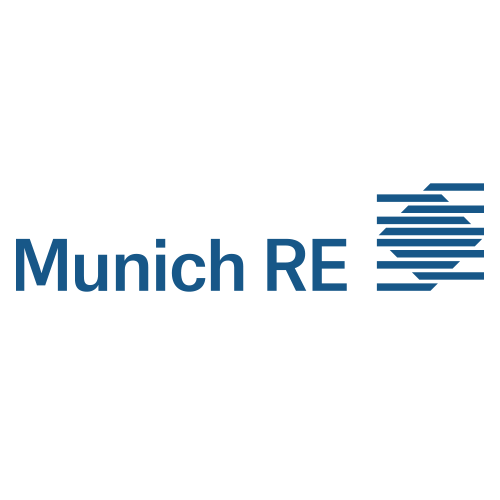 Munich Re
Munich Re
Munich Re ist ein weltweit führender Anbieter von Rückversicherung, Erstversicherung und versicherungsnahen Risikolösungen. Die Unternehmensgruppe erwirtschaftete einen Versicherungsumsatz von über 57 Milliarden Euro im Jahr 2023. Mit herausragendem Risiko-Knowhow und finanzieller Solidität unterstützt Munich Re die Kundeninteressen und den technischen Fortschritt.
Innerhalb von QUTAC analysiert Munich Re mögliche Anwendungsszenarien und erarbeitet erste quantenbasierte Geschäftsideen, beispielsweise für die Absicherung von Quantum Computing Dienstleistungen oder bei der Modellierung von Risiken in der Finanzwelt.
-
 SAP
SAP
Als ein Marktführer für Geschäftssoftware unterstützt SAP Unternehmen jeder Größe und Branche dabei, ihre Ziele bestmöglich zu erreichen. Unsere Technologien für maschinelles Lernen, das Internet der Dinge und fortschrittliche Analyseverfahren helfen unseren Kunden auf dem Weg zum intelligenten Unternehmen.
SAP treibt innerhalb von QUTAC den Einsatz von Quantencomputing in Anwendungen des maschinellen Lernens und der Optimierung von Geschäftsprozessen voran. Dazu gehört die Entwicklung von Möglichkeiten, um Transportrouten, Lieferketten oder Produktionspläne zu optimieren. Dies verringert das Verkehrsaufkommen sowie den Ressourcen- und Emissionsverbrauch.
-
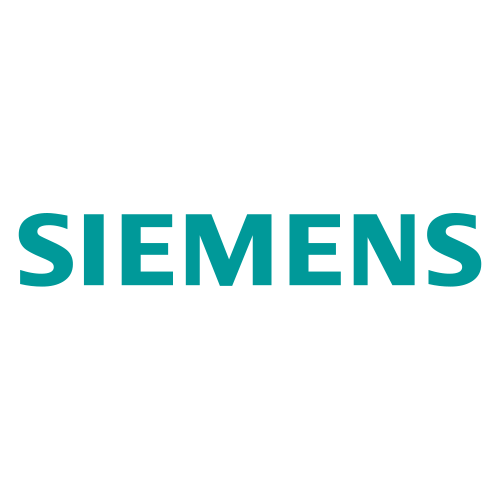 Siemens
Siemens
Die Siemens AG ist ein führender internationaler Technologiekonzern mit weltweit rund 320.000 Beschäftigten – und einer der größten privaten Arbeitgeber in Deutschland. Mit Fokus auf Industrie, Infrastruktur und Mobilität gestaltet das Unternehmen den Übergang ins digitale Zeitalter mit.
Bei QUTAC setzt Siemens sich dafür ein, individuelle Lösungen für effizientes Shopfloor Management zu ermöglichen. Mithilfe von Quantencomputing möchte Siemens robuste Modelle entwickeln, die weniger anfällig für Störungen und zugleich flexibler sind. Auch im Bereich Maschinelles Lernen engagiert sich Siemens, um Datenanalysen für zahlreiche Branchen zu beschleunigen.
-
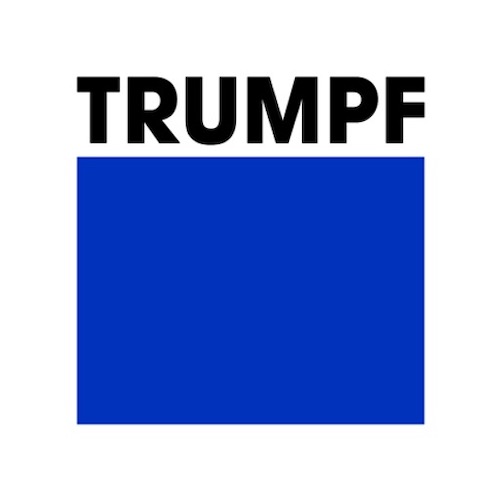 TRUMPF
TRUMPF
Als Hochtechnologieunternehmen bietet TRUMPF Fertigungslösungen in den Bereichen Werkzeugmaschinen und Lasertechnik und treibt durch Beratung, Plattform- und Softwareangebote die digitale Vernetzung der fertigenden Industrie voran. Mit seinen rund 18.400 Mitarbeitern erwirtschaftete TRUMPF im Geschäftsjahr 2022/23 einen Umsatz von rund 5,4 Milliarden Euro. Die langfristige Orientierung eines unabhängigen Familienunternehmens mit Stammsitz in Ditzingen nahe Stuttgart macht TRUMPF zu einem Garanten kontinuierlicher Innovation.
Innerhalb von QUTAC vertritt TRUMPF die Bereiche Maschinenbau, vernetzte Fertigung sowie Lasertechnik. Das Unternehmen widmet sich primär der Entwicklung von Quantencomputing-Anwendungen zur Optimierung der Maschinenbelegung in der Produktion, der Bildverarbeitung durch maschinelles Lernen sowie der Simulation des Wärmeeintrags beim Laserschneiden.
-
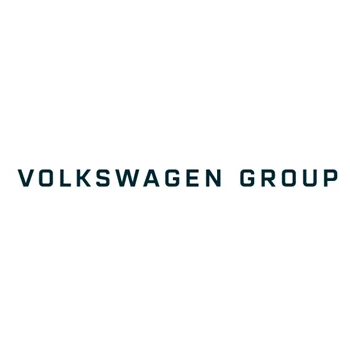 Volkswagen Group
Volkswagen Group
Die Volkswagen Group ist einer der weltweit führenden Automobilhersteller mit Hauptsitz in Wolfsburg, Deutschland. Die Fahrzeuge der Gruppe werden in über 150 Ländern verkauft. Mit einem konkurrenzlosen Portfolio starker globaler Marken, führenden Technologien im industriellen Maßstab, innovativen Ideen zur Erschließung künftiger Profit Pools und einem unternehmerisch denkenden Führungsteam setzt sich der Volkswagen Konzern dafür ein, die Zukunft der Mobilität durch Investitionen in elektrische und autonom fahrende Fahrzeuge, Digitalisierung und Nachhaltigkeit zu gestalten.
Volkswagen engagiert sich bereits seit 2015 umfassend im Bereich Quantencomputing. Bei der Zusammenarbeit innerhalb von QUTAC liegt der Fokus des Konzerns auf der Weiterentwicklung von Tourenplanungsprozessen. Ziel ist es, mithilfe von Quantenalgorithmen sowohl Logistik als auch Produktion zu optimieren.